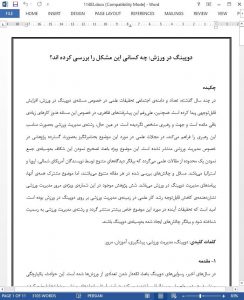Abstract
In the last few years there has been a significant increase in the number and scope of social science research into doping in sport. However, despite this apparent progress, the field remains a disparate body of work and lacks both direction and leadership. Whilst sport management is a discipline that is well suited to provide such leadership, scholarly research into this controversial topic has not been published widely in sport management journals. This special issue redresses this gap by bringing together a range of scholarly articles that represent a variety of perspectives by authors from North America, Europe and Australia. The issues and challenges covered are varied, but each paper brings a common theme: the implications for the management of doping in sport. The six papers in this Special Issue of Sport Management Review are a significant addition to the slowly growing body of sport management scholarly work on doping in sport. It is hoped that future research will be prompted with this Special Issue and the discipline of sport management will recognize and respond to the challenges presented by doping.
1. Introduction
In recent times doping scandals have tarnished a number of sports. These incidents pose threats to the integrity of sport, both nationally and on a global scale. In response, sporting organizations and governments have introduced legislation and accompanying sanctions to deter the use of both performance enhancing and other illicit (non-performance enhancing) drugs. However, it could be argued that effective strategies for combating doping in sport are hindered by a lack of organizational commitment, varying opinions on how the problem should be managed and a lack of reliable information and empirical data to formulate and implement appropriate doping policy.









